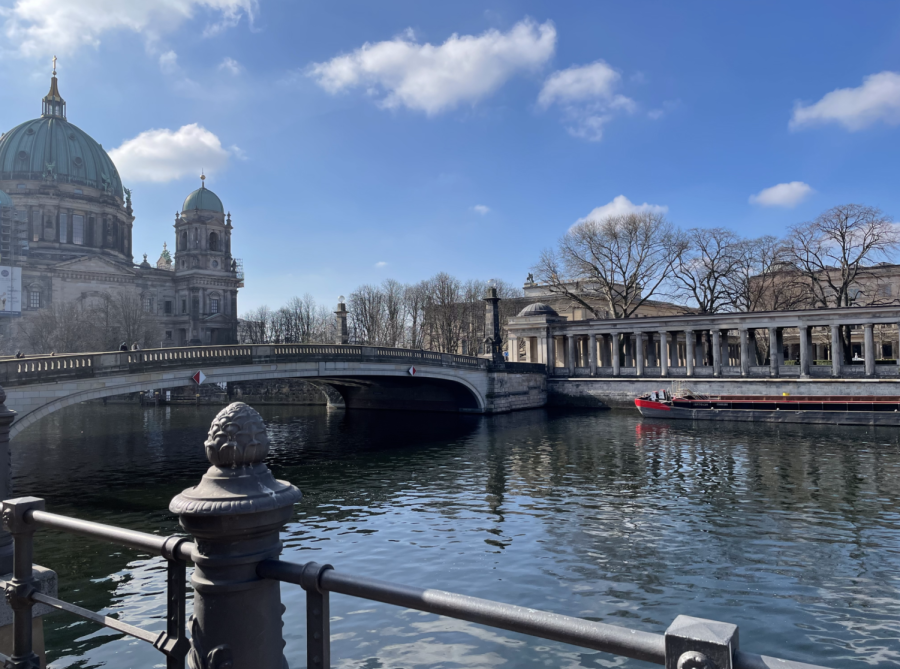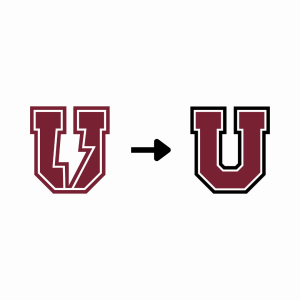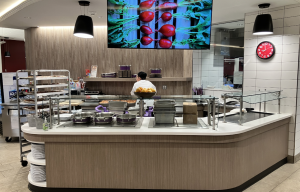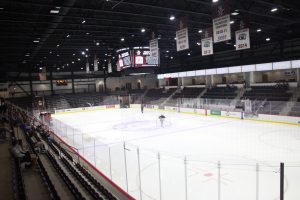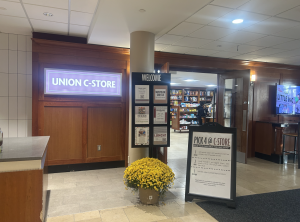Re: Language in Berlin
Berlin’s Museum Island with the Berlin Cathedral (Berliner Dom) on the left
April 7, 2022
Maybe one of the most jarring things about living and being in Berlin is the incredible amount of English that is all of the city. English is in the airport and its environs (regular for international travel), but also in menus, metro stations, graffiti and advertisements. This is especially true of spoken word at the German Language School, the base of Union’s Berlin study abroad program. GLS is by no means monopolized by Americans; Union is the sole organized American group here. English’s popularity is quite surprising but has been extremely helpful; official instruction and textbooks at GLS are all in German. This was expected but extremely jarring.
Despite English’s prevalence in Berlin, the biggest hurdle has been the language gap. But it has manifested in unexpected ways. I find myself limited less in action than in expression. I expected my lack of ability to speak to first and foremost impair me in going to restaurants, taking the metro, exploring and making the most out of living in Berlin; that not knowing German would cloister me away from the city and keep me in GLS’s wonderful campus. At the same time, I expected not knowing German to lead to an easier, or at least more efficient process of classroom experience. Those expectations have been fully reversed. I’m very at ease in the wider city and can take full advantage of shops, cafés, etc.. But my ability of verbal expression has been greatly diminished. It’s added a level of unsureness that can occasionally be infuriating. I suppose none of this is especially surprising. No one starves during study abroad; so obviously students shop for groceries, visit restaurants, or are fed by host families. But perhaps because of the key position of language on this trip, my experience has made it clear how high the bar is for any form of expression, and how much higher that bar is for cogent, funny or insightful expression. One can only hope those things are possible in one’s native language. The academics of language learning and the realities of living that language abroad are sharply different.
The brand of student that comes to GLS is also interesting; GLS is very much a preparatory school. Most students are studying to achieve certificates that will allow them to get into Universities or for the possibility of getting residency visas. With classmates with such professional and outstanding goals, Union students are also there. So, on the first day of classes, when everyone was sharing why they’d come to study German, everyone in my class had long term goals behind their time at GLS (which for some is quite a long time). I couldn’t give the same caliber of answer. My reasons are personal and based on my interests rather than career aspirations. But studying has become each day’s schedule, with classes all morning and trips around the city in the afternoon.


